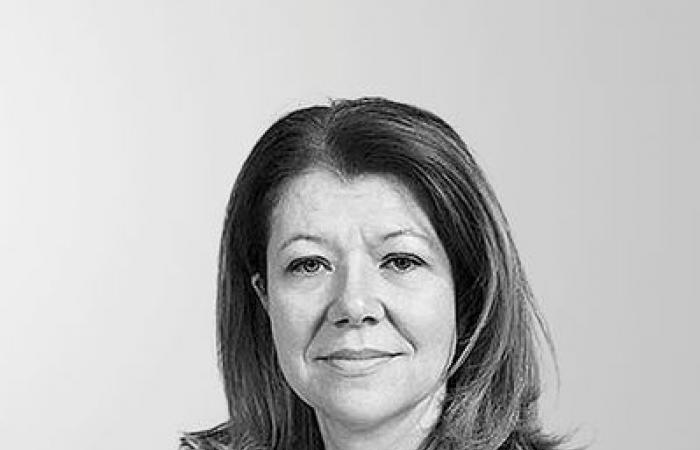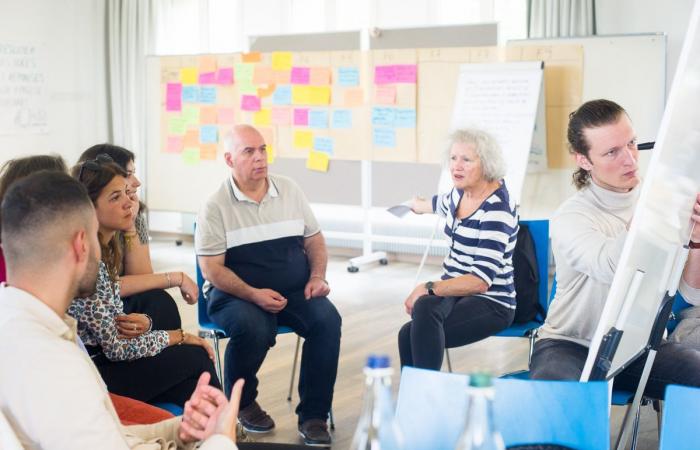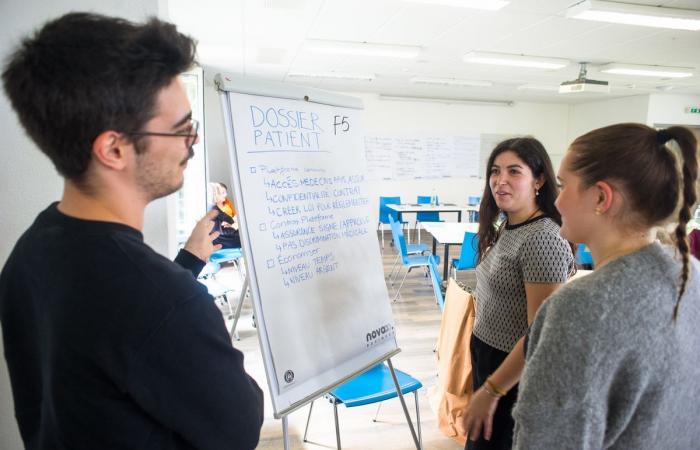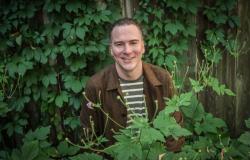– This is how we could revolutionize the health system
French-speaking citizens have written a manifesto on the future of healthcare in Switzerland. While the bonuses are taking off, some proposals are mind-blowing.
Published today at 9:57 a.m.
After listening to experts, the 24 citizens discussed for three days.
Miguel Bueno
Subscribe now and enjoy the audio playback feature.
BotTalk
- Twenty-four French-speaking citizens debated our health system for three days.
- Their proposals include a single fund and income-based bonuses.
- They particularly recommend more prevention and better listening to patients.
- Their manifesto will be presented at the Planet Health Festival next November.
Single fund, premium based on income, bonus system for those who live healthily… When asked how they would change our health system, citizens do not hesitate to advocate revolution. This observation emerges from a democracy exercise carried out at the initiative of the Leenaards Foundation, with the support of the Demoscan association.
For three days, 24 people representing the French-speaking population debated our health system, in order to write a citizen manifesto. It proposes ways to reduce health costs, while a new increase in health premiums was announced on Thursday.
A healthy debate
This Saturday, September 21, in Morges, the participants finish writing this text. In the room, the atmosphere is studious. The proposals are debated with the help of a mediator. But even if opinions differ, people do not cut each other off.
The debate concerns in particular the creation of a voluntary system, which would allow policyholders who adopt virtuous behavior to earn points. Some evoke the social determinants leading to moving more or eating better, and warn against discrimination. Another retorts: “I don’t see where the discrimination is, because we’re talking about prevention. We are not proposing to tax people who smoke or who eat poorly.”
Complementary medicines divide
Ultimately, the concept was adopted by twelve votes to five. There are other sticking points – such as the reimbursement of complementary medicines. But it is unanimously that the panel of citizens advocates the transition from a care system to a health system, which would take the human being as a whole, without forgetting its mental dimension and the treatment of stress.
After listening to experts present the issues to them, these citizens came face to face with the opinions of other participants and the need to find compromises. What emerges from their manifesto is the desire for a medicine focused more on listening and prevention than on prescribing medications. We also sense their desire to participate in the debate, which according to them requires greater transparency. They want to know why premiums are increasing. And that the technical language be popularized to better understand the costs.
What if we introduced a course at school on the administrative management of the system (civic education type), in addition to health prevention programs? Among the proposals, there is still talk of installing green spaces in neighborhoods or creating places where patients and providers can exchange experiences in order to improve treatments.
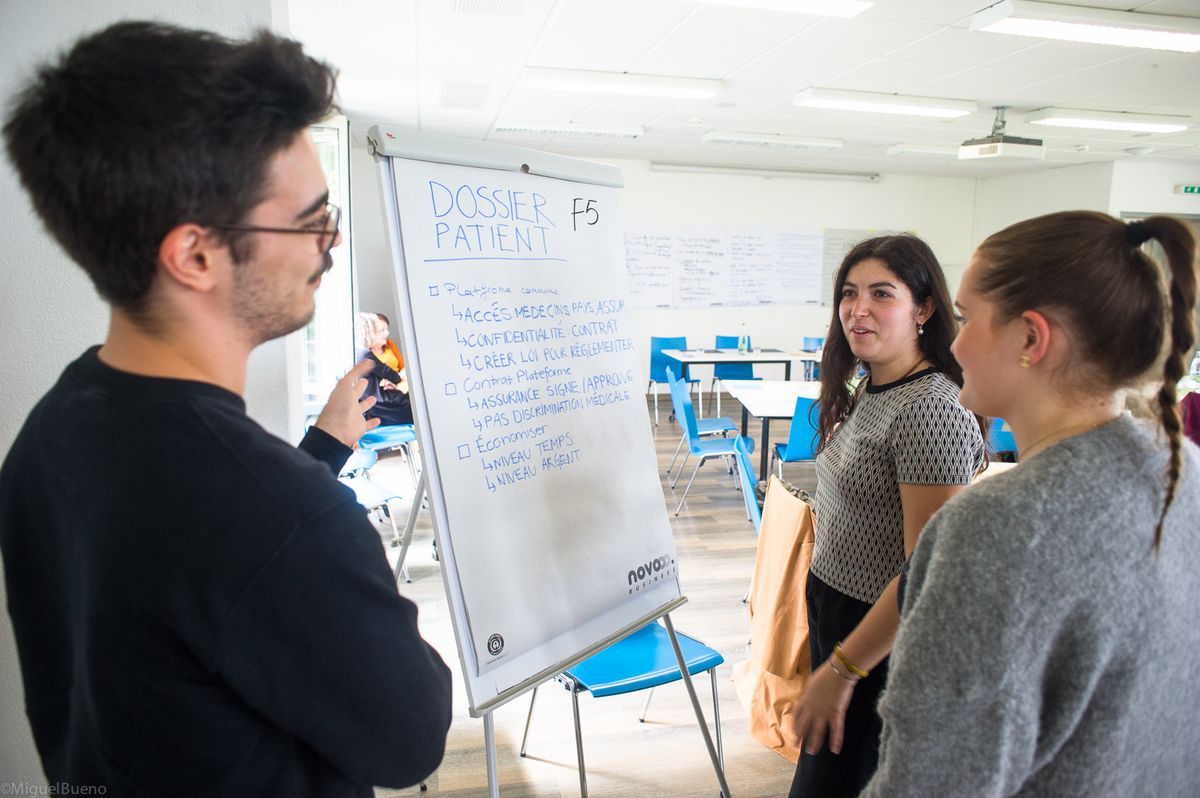
The panel of Vaud policyholders advocates the development, at national level, of an electronic patient file.
Miguel Bueno
Unsurprisingly, the apprentices of participatory democracy fall back on sea serpents. They advocate the development, at the federal level, of an electronic patient file. According to them, the general practitioner must be valued. The latter must in particular be able to manage the time of consultations to acquire in-depth knowledge of the patient. A little contradictory? They ask to be able to directly consult certain specialists, such as dermatologists and psychiatrists.
Several proposals echo political debates. However, these files are slipping due to divergent interests or have been stopped during voting. The signatories, for example, call on the State to set spending and prevention objectives, reviewed each year. According to them, the prices of medicines must be capped and the premiums must become the same in all cantons… Or even be integrated into taxes (a proposal adopted by 15 votes to 6).
Yes to the public fund
Another thorny issue, the manifesto demands that premiums be set based on income. And supports the principle of a single public fund, by 17 votes to 1 and 6 abstentions. Surprising? Brigitte Rorive Feytmans, president of the Leenaards Foundation, recalls that French-speaking people generally defend a more social and united vision of health than German-speaking people, for whom it is an individual responsibility. “Personally, I don’t see myself in this proposal,” explains Djamil, a 26-year-old student. There are different visions in the group. But that’s the game: we voted and the democratic aspect outweighs the disagreements.”
For five years, the association Demoscan organized several experiences of participatory democracy, on different themes. The French-speaking manifesto on health will be published. A short film will retrace the adventure, the result of which will be presented at the Planet Health Festival on November 16 and 17 in Lausanne.
At this point you will find additional external content. If you accept that cookies are placed by external providers and that personal data is thus transmitted to them, you must allow all cookies and display external content directly.
Allow cookiesMore info
“I would like us to be read in high places, with a sympathetic eye and that we see a reflection of the concerns of many citizens,” hopes Annie, a retired teacher. The signatories are not fooled, however. “Our work will not necessarily influence the government or parliament,” recognizes Guy-François, a 53-year-old technician. But perhaps it will interest people who want to launch a popular initiative?
“Giving back the voice to citizens”
When asked if such an operation is not utopian, Brigitte Rorive Feytmans replies that it is mainly “about planting seeds”. “The health system is there for the citizens, we must give them a voice,” she argues. They are the ones who foot the bill for health costs, which exceed 90 billion francs per year. Elected officials must listen to them!”
Beyond the main principles, don’t difficulties arise when we get into concrete details, as we see in political debates? “On such a complex subject, we cannot expect a group of citizens to find the solution in three days!” exclaims Nenad Stojanovic, co-president of Demoscan.
The French-speaking experience heralds another, on a national scale. A citizens’ assembly bringing together 100 people drawn at random from across the country will begin in November to debate the same subject. “In this context, contacts have been made with the Federal Office of Public Health and federal parliamentarians from all parties will serve as our guides,” explains Nenad Stojanovic. The work done in French-speaking Switzerland will be useful in setting up the process.”
Caroline Zuercher has been a journalist in the Switzerland section since 2005. She covers in particular topics related to health and health policy. Previously, she worked for Swissinfo and Le Matin.More info
Did you find an error? Please report it to us.
21 comments

